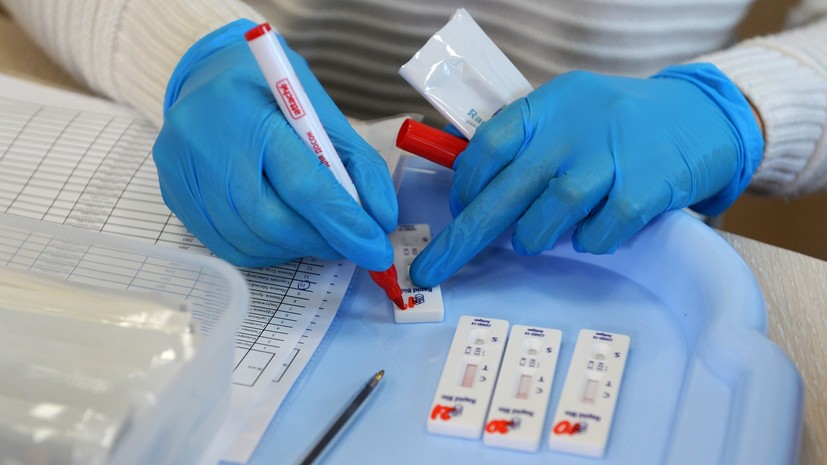Moscow Mayor Sergei Sobyanin announced new solutions in the capital due to the situation with the spread of COVID-19.
“In September, Moscow entered a new period of growth in the incidence of COVID-19.
Compared to August of this year, the number of detected cases of infection has quadrupled - up to 42 thousand cases per week, ”says Sobyanin's blog.
According to him, the number of people hospitalized in hospitals with a severe form of the disease is growing every day.
Based on the available data, the mayor noted, the picture of the end of 2020 is repeated.
Then the incidence of coronavirus began to rise in September, and its peak fell in December.
He noted that in 2021 the situation is different due to the number of vaccinated citizens.
According to the mayor, we are talking about about 5 million vaccinated Muscovites, mostly middle-aged.
At the same time, out of about 3 million residents of the capital over 60 years old, only 1.14 million were vaccinated, the mayor said.
“Today, 60% of patients in covid hospitals are Muscovites over the age of 60.
Almost 80% of people on mechanical ventilation are elderly people.
Among those who died from covid, their share reaches 86%.
And, as a rule, they did not get vaccinated, ”Sobyanin said.
According to him, in this situation it is necessary to take urgent measures "to protect the older generation and other vulnerable categories of citizens."
In particular, from October 25 to February 25, 2022, Muscovites over the age of 60 and citizens suffering from chronic diseases must again observe their home regime.
At the same time, walks and physical education in the fresh air are not limited.
Working citizens have the right to get sick leave.
Those who have been ill with COVID-19 in the last six months, or have been vaccinated, are exempted from the need to comply with a home regimen.
Also on russian.rt.com "The situation with the coronavirus continues to deteriorate": Mishustin supported the proposal to declare non-working days in Russia
In addition, in the period from October 25 to February 25, employers in Moscow must transfer 30% of employees to a remote mode of work.
“We recommend, first of all, transferring unvaccinated and non-sick employees of pre-retirement age and those who are at high risk for health reasons,” the mayor said in a statement.
An exception to the rule will be made only by those employees whose presence in the workplace is critical for the functioning of the organization.
Along with this, at the request of Rospotrebnadzor, employers must increase the number of vaccinated service workers to 80% by January 1, 2022.
Vaccination with the first component must be carried out by December 1, 2021.
Sobyanin noted that the restrictions are "tiresome and uncomfortable."
“But there is simply no other way to protect you from a serious illness,” the mayor concluded.
Incidence and non-working days data
We will remind, in Russia on the last day, 33,740 new cases of coronavirus infection were detected.
For the first time in the past seven days, the daily growth rate decreased compared to the previous day.
To date, 225,325 patients have died in Russia from complications that developed against the background of COVID-19 and concomitant diseases.
Over the past 24 hours, the number of deaths has reached 1,015. According to data for October 18, the country has updated the daily anti-record for the number of deaths from COVID-19.
During a meeting of the Presidium of the Coordination Council under the Government to combat the spread of COVID-19, held on October 19, Russian Deputy Prime Minister Tatyana Golikova proposed introducing non-working days throughout the country from October 30 to November 7 inclusive.
For regions with a difficult epidemiological situation, the Deputy Prime Minister proposed to provide for the possibility of introducing non-working days from this Saturday, October 23, 2021.
She noted that the situation with the spread of coronavirus infection in the country continues to deteriorate.
Golikova's initiative was supported by Prime Minister Mikhail Mishustin.
According to him, the proposed restrictions are not easy, forced, but necessary.
Mishustin also noted that the load on medical institutions has been seriously increasing in recent weeks.
Chief sanitary doctor Anna Popova, in turn, said that the current epidemiological situation "does not allow to sway and think for a long time" about making or not making decisions, since "this certainly leads to a worsening of the epidemiological situation."
According to the information given by Popova, a clear increase in the incidence of coronavirus is observed in 72 constituent entities of the Russian Federation, and in six regions the situation is still stable, without significant dynamics.
More than 1.2 million people are under medical supervision, which is approaching the peak in 2020.

